Board Profiles
CHAIR
Professor Terry Haines - CHAIR
Head of School
School of Primary Allied Health Care
Monash University, Victoria
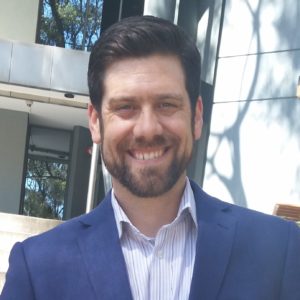 Professor Terry Haines is Head of the School of Primary and Allied Health Care at Monash University. In this role he is responsible for a school with 6 departments, over 150 staff, and over 180 research higher degree students.
Professor Terry Haines is Head of the School of Primary and Allied Health Care at Monash University. In this role he is responsible for a school with 6 departments, over 150 staff, and over 180 research higher degree students.
He has a professional background in physiotherapy and health economics, and has worked in research roles imbedded within health services for over 15 years before commencing as the Head of School in 2017. He has previously worked for Eastern Health, the University of Queensland, the Princess Alexandra Hospital, and Monash Health.
His primary research interest is in improving the allocation of health care resources to better meet emerging community needs and reducing waste. He currently leads the NHMRC funded EviTAH project, which is focused on identifying the most effective and efficient ways of translating research evidence into practice. This work builds on recent collaborative work with the Victorian Department of Health and Human Services developing the online Resource Allocation Decision Tool, designed to assist health service managers to incorporate research evidence into a broader decision making framework.
Professor Haines’s research has led to several advances in health outcomes. Notable examples include:
- Leading the world’s first trial to demonstrate that falls amongst hospitalised adults could be prevented.
- Developing a patient education program that led to a 50% reduction in falls and fall injuries when rolled out in a randomised trial amongst geriatric rehabilitation units in Western Australia.
- Collaborating with allied health working in oncology services to develop a video-based exercise program that improved the health-related quality of life in women following treatment for breast cancer, and a telephone-based dietetic counselling intervention that improved nutrition and survival outcomes in people with upper gastrointestinal cancer.
He has also contributed to advances in research methodology. Notable examples include:
- Development of a new randomised controlled trial research design for the context of disinvestment from a routinely provided service that has a relative absence of evidence examining its effectiveness or economic efficiency.
- Development of a new statistical analysis approach for the evaluation of screening tool predictive accuracy where the outcome of interest is a recurrent event.
- Identifying design-related bias in evaluations of screening tools that lead to a 20% overestimation of the accuracy individual tools.
He has received over $18 million in research funding, published over 230 peer-reviewed manuscripts including papers in journals the calibre of The Lancet, BMJ, JAMA Internal Medicine, PLoS Medicine, and BMC Medicine. He has supervised 16 PhD, 1 DPsych, and 1 Research Masters student through to completion. He has twice been awarded the NHMRC Excellence Award and has received the SACS Consulting Award for leadership in the Victorian State Government Sector. He has previously served as President of the Australia New Zealand Falls Prevention Society, Chair of the Australian Physiotherapy Association – Physiotherapy Research Foundation Grant Review Committee, and convenor of the inaugural Victorian Allied Health Research Conference (2014) and convenor of the Australia New Zealand Falls Prevention Conference (2016).
Executive Members
Professor Marion Gray - DEPUTY CHAIR
Academic Director and Dean
Health Partnerships at the University of Southern Queensland
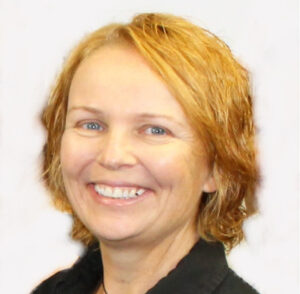 Professor Marion Gray completed a Bachelor of Occupational Therapy in New Zealand and practiced as a therapist. Later returning to study and completing a Masters in Health Sciences, focused on ethics and cultural safety, then a PhD in Public Heath on prostate cancer diagnosis and prevalence. Followed by a Postdoctoral Fellowship examining environmental epidemiology in Washington DC with the US Department of Defense. She also completed a Postgraduate Certificate in Tertiary Teaching.
Professor Marion Gray completed a Bachelor of Occupational Therapy in New Zealand and practiced as a therapist. Later returning to study and completing a Masters in Health Sciences, focused on ethics and cultural safety, then a PhD in Public Heath on prostate cancer diagnosis and prevalence. Followed by a Postdoctoral Fellowship examining environmental epidemiology in Washington DC with the US Department of Defense. She also completed a Postgraduate Certificate in Tertiary Teaching.
Marion has over 25 years of experience in teaching and in research using both qualitative and quantitative methods. She has worked as a teaching/research academic and held various leadership positions at Australian Universities since 2005.
Her research interests include teaching, health service and clinical research with a particular focus on low resource settings, overseas and in Australia. Marion has won two national teaching awards for her teaching innovations in allied health.
Marion currently holds the position of Academic Director and Dean – Health Partnerships at the University of Southern Queensland.
Professor Esther May - CHAIR FINANCE AND AUDIT
Dean: Academic and Clinical Education
Division of Health Sciences
University of South Australia (UniSA), South Australia
 Esther May’s role as Dean: Academic and Clinical Education has a strategic focus on the student experience and quality of teaching and learning in the context of the future healthcare workforce, clinical education, equity and excellence and partnerships.
Esther May’s role as Dean: Academic and Clinical Education has a strategic focus on the student experience and quality of teaching and learning in the context of the future healthcare workforce, clinical education, equity and excellence and partnerships.
Originally trained as an occupational therapist, Esther obtained a PhD in medical sciences from the University of Gothenburg (Sweden) in 1992. Since then, she has been an active educator and researcher with achievements that include 18 PhD and Masters by Research student completions. Esther has been the Australian delegate to the World Federation of Occupational Therapists and is an honorary and founding member of the Australian Hand Therapy Association.
Esther has a keen interest in health workforce matters and the role of education in producing the health workforce of the future. She oversees government funded grants which target improved clinical training, simulated learning and clinical supervision. Her portfolio includes the UniSA Department of Rural Health (DRH), which oversees rural placements and education for students outside metro Adelaide.
Esther’s experience in management and leadership is extensive, including seven years leading the UniSA School of Health Sciences, and before that seven years leading the School of Occupational Therapy. She is currently a member of the Australian Collaborative Education Network and has been an executive member of the Australian Council of Deans of Health Sciences since 2011.
Professor Rosa Alati - DIRECTOR
Head of School
Curtin School of Population Health Curtin University
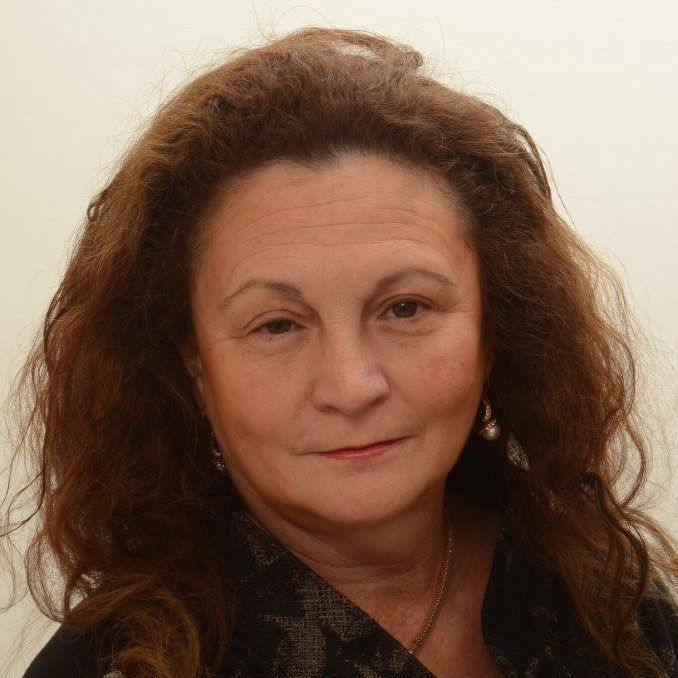 Professor Rosa Alati is recognised internationally as an outstanding researcher in the field of health and mental health and currently leads the School of Population Health at Curtin University, Western Australia.
Professor Rosa Alati is recognised internationally as an outstanding researcher in the field of health and mental health and currently leads the School of Population Health at Curtin University, Western Australia.
During her career, she has worked with national and international teams to progress the study of maternal and offspring outcomes particularly in relation to mental health and well-being. Since her seminal paper on the impact of maternal light alcohol use in pregnancy on offspring’s alcohol disorders, she has continued to produce research evidence linking early life exposures with offspring’s health outcomes.
Her research has informed public health policies and interventions in Australia and overseas. She is a member of expert panels whose determinations translate directly into changing government protocols and practice.
Associate Professor Kelli Nicola-Richmond - DIRECTOR
Associate Head of School Teaching and Learning -School of Health and Social Development
Lecturer Occupational Therapy
Senior Fellow Higher Education Academy
Deakin University, Victoria

Associate Professor Kelli Nicola-Richmond is the Associate Head of School Teaching and Learning, in the School of Health and Social Development at Deakin University. She is a Senior Fellow of the Higher Education Academy and holds a Graduate Certificate in Higher Education. Kelli completed her PhD in 2020 with a thesis by publication – Developing Work-ready Graduates: Threshold Concepts in Occupational Therapy. Kelli’s undergraduate degree was in Physiotherapy and she worked in clinical roles for 16 years before joining Deakin in 2012. Kelli is also a Board director of a regional Australian health service.
Kelli is passionate about facilitating high-quality teaching, learning and assessment experiences for health students so that they graduate ready to deliver exemplary health care and related services. She has a strong interest in quality assurance and governance both within Deakin and beyond. She has recently led the Academic component of university-wide projects to strategically redesign Deakin’s approach to teaching and learning and update assessment policy and procedures, determining Deakin’s future assessment strategy.
Kelli’s current research interests include; evaluative judgement (the ability to judge the quality of one’s own work and the work of others) particularly in health placement settings; student and academic perceptions of the impact of generative artificial intelligence on assessment; course-wide approaches to generative artificial intelligence; student and academic experiences of online proctored exams; teaching feedback literacy; cheating in online exams; allied health assessment and treatment in Long COVID; and threshold concept identification and acquisition.
Professor Andy Stewart - DIRECTOR
Dean | School of Health, Medical and Applied Sciences
CQUniversity Australia, Queensland
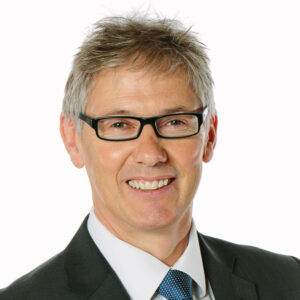 Professor Andy Stewart was trained as a Physical Education teacher at the Scottish School of Physical Education in the 1980s. He then undertook postgraduate studies in Sports Science at the University of Stirling before moving to New Zealand where he completed his PhD in Sports Science in 1997 at the University of Otago.
Professor Andy Stewart was trained as a Physical Education teacher at the Scottish School of Physical Education in the 1980s. He then undertook postgraduate studies in Sports Science at the University of Stirling before moving to New Zealand where he completed his PhD in Sports Science in 1997 at the University of Otago.
Professor Stewart’s professional and academic appointments since then have included:
- Director of the Scottish Institute of Sports Medicine and Sport Science;
- serving on the inaugural steering committee setting up the UK Sports Institute;
- General Manager of High Performance Sport at the Millennium Institute of Sport and Health, New Zealand;
- Director of Clinical Exercise Science Unitec, New Zealand;
- Director of Clinical Exercise Physiology, Victoria University, Melbourne, Australia;
- Dean of the College of Sport and Exercise Science and Chair of Sport Strategy, Victoria University, Melbourne, Australia;
- and currently serving as the Dean of Health, Medical and Applied Sciences, CQUniversity, Rockhampton, Australia.
In his current role, Professor Stewart is responsible for 4 Academic Colleges containing ~400 staff, ~200 HDR students, and ~5000 UG/PG students.
Professor Stewart has a renowned international reputation with over 200 outputs in the form of journal articles, books, internet publications, conference presentations, and seminars on topics mostly related to monitoring training load, periodization, tapering, over-training/reaching, injury, and return to play. He has supervised to completion 12 PhD, 38 Masters, and 10 Hons theses.
Professor Stewart is heavily invested in the ethos of a Tertiary Education sector that encompasses two systems: VET and HE in which students learn and are exposed to the ‘what and why’ pedagogy typically associated with HE, and the ‘how and who’ more conventionally associated with VET. In the end, students play a major part in creating the University experience and are ultimately the embryonic stage of the workforce.
Associate Professor David Reid - DIRECTOR
Associate Dean of Allied Health | School of Medical and Health Sciences
Registered Paramedic
Edith Cowan University, Western Australia
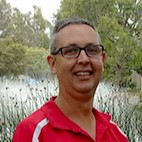
David Reid is the Associate Dean of Allied Health in the School of Medical and Health Sciences and a Registered Paramedic.
David has a teaching focus on emergency care focussing on trauma and prehospital resuscitation, ethics and law and emergency management. He has a specialist interest in safety and quality in healthcare and clinical governance.
David holds pre-hospital qualifications and works with St John Ambulance (WA). Previously he worked for the Ambulance Service of NSW and St John Ambulance (Northern Territory). He has held operational (front line) paramedical roles as well as management roles in areas such as emergency management, clinical governance, and resuscitation improvement.
Prior to joining ECU, David spent a number of years in management consulting, where, as a manager with PricewaterhouseCoopers and a boutique consultancy in Perth he undertook specialist healthcare consulting across private and public healthcare providers.
He is a past Director of Performance Review in the Office of the Auditor General (WA), and holds the Australian Institute of Company Director’s Diploma.
In his spare time David is a member of Surf Life Saving Australia’s Medical Advisory Committee and is currently on the Australian Commission on Safety and Quality in Healthcare’s Committee developing Safety and Quality Standards for Australian Ambulance Services. He is a competency assessor for Ahpra and leads consortium of five Universities providing assessment services to the Paramedicine Board of Australia.
Professional Associations
- Graduate Member Australian Institute of Company Directors
- Member Paramedics Australasia
- Independent Member Lifesaving Advisory Committee – Surf Life Saving Australia
Research Areas and Interests
- Pre-Hospital Paramedicine
- Emergency Management
- Mass Gatherings
- Aeromedical Clinical Care and Evacuation
- Evidence Based Competency Assessment
Professor Russell Hoye - DIRECTOR
Pro Vice-Chancellor for Research Development and Director of Sport
La Trobe University, Victoria
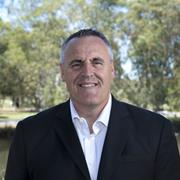
Russell Hoye, PhD is the Pro Vice-Chancellor for Research Development and Director of Sport at La Trobe University, Australia
Professor Russ Hoye, PhD, is the Dean of Allied Health, Human Services and Sport, one of Australia’s leading health sciences School. He has previously served as Pro Vice-Chancellor (Research Development), Director of the Centre for Sport and Social Impact, Director of the Sport, Exercise and Rehabilitation Research Focus Area, and Associate Dean (Research) at La Trobe University.
His research interests are in corporate and nonprofit governance, public policy, and volunteer management in sport. He has secured more than $3.8M AUD in research funding and has been chief investigator on three Australian Research Council grants and two Canadian Social Sciences and Humanities Research Council grants. His most recent funded research projects include a review of contemporary corporate governance in the Canadian national sport system, identifying the social value of community sport organisations, and the role of social capital in determining the capacity of community sport organisations.
Russ has published nine books and more than 70 journal articles, including being published in the Journal of Sport Management; Sport Management Review; European Sport Management Quarterly; International Review for the Sociology of Sport; International Journal of Sport Policy and Politics; Sport in Society; Managing Leisure; Journal of the American Medical Association; British Journal of Management; Asia Pacific Journal of Human Resources; Nonprofit Voluntary Sector Quarterly; Nonprofit Management and Leadership; Public Management Review; Australian Journal on Volunteering; Journal of Sociology; Journal of Social Service Research; and Event Management.
He is currently the editor of the Sport Management Series published by Routledge; a member of the editorial boards for Sport Management Review, the International Journal of Sport Policy and Politics, and the Journal of Global Sport Management; past President of the Sport Management Association of Australia and New Zealand (SMAANZ) and is a graduate of the Australian Institute of Company Directors.
Mr Shaun McDonagh - EXECUTIVE DIRECTOR AND COMPANY SECRETARY
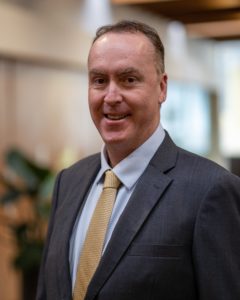 Shaun is the Executive Director of ACDHS Ltd. He has had extensive management and non-executive director experience working in higher education, health and member organisations. He has broad experience with advocacy and stakeholder engagement including extensive work on the NDIS.
Shaun is the Executive Director of ACDHS Ltd. He has had extensive management and non-executive director experience working in higher education, health and member organisations. He has broad experience with advocacy and stakeholder engagement including extensive work on the NDIS.
Shaun holds qualifications from the AICD, a Masters of Commercial Law and a Masters of Marketing. Shaun’s endeavour is to maintain and further develop the strong relationships with all key internal and external stakeholders to ACDHS.


DISCLAIMER
While we make every effort to ensure that material on this website is accurate and up to date, such material does not constitute provision of professional advice. The Australian Council of Deans of Health Sciences Limited (ACDHS) does not guarantee, and accepts no legal liability whatsoever arising from or connected to, the accuracy, reliability, currency, or completeness of any material contained in this website or any linked site. Users should seek appropriate independent professional advice prior to relying on, or entering into any commitment based on materials published on this website.
